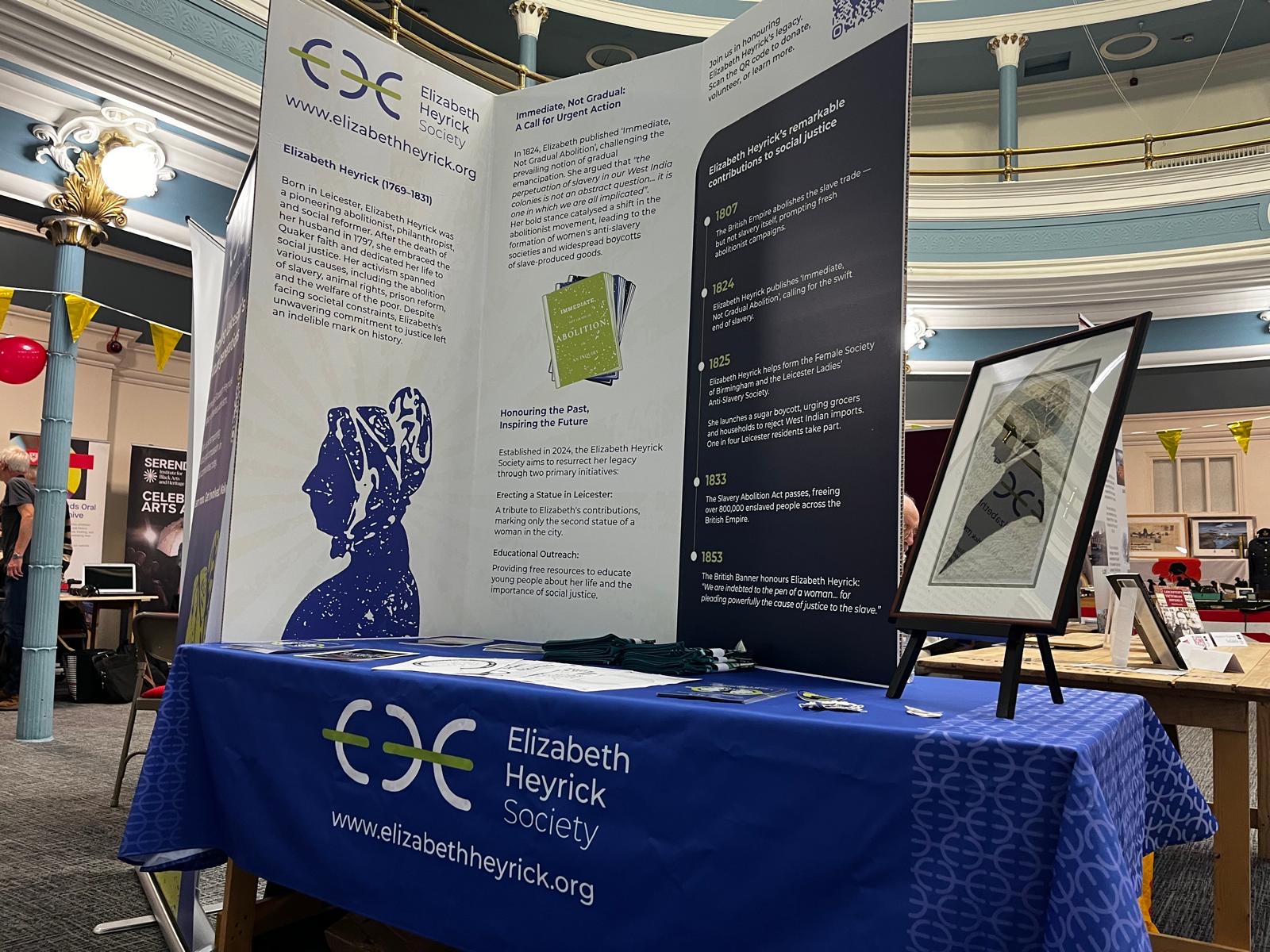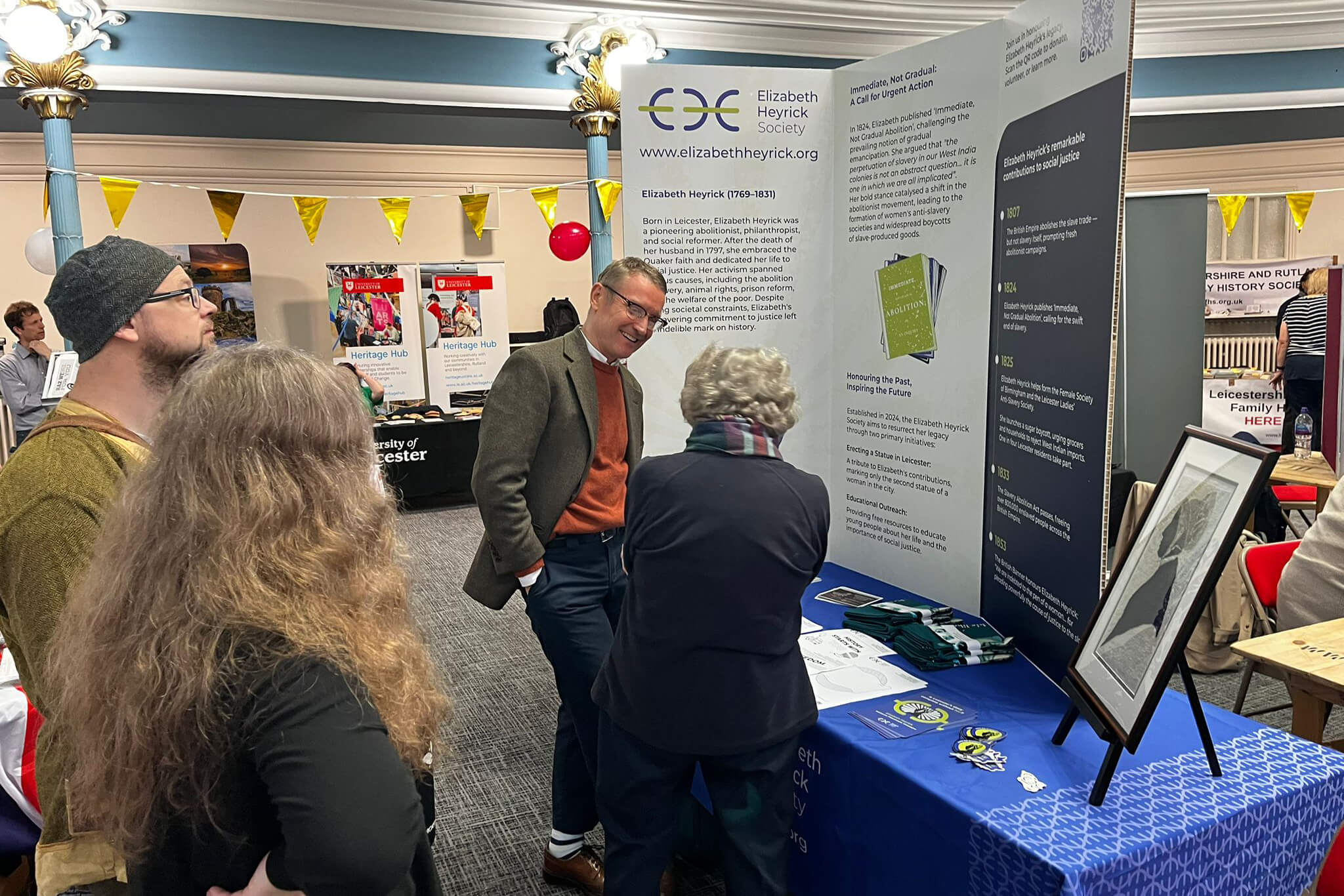Today, on the International Day for the Abolition of Slavery, we pause to reflect on the historical fight to end the transatlantic slave trade and the ongoing struggle against modern slavery. This global day of awareness reminds us that the fight for freedom and dignity is far from over.
For many, slavery is a concept confined to history books, a grim chapter from which societies have long since moved on. Yet, the harsh reality is that slavery persists today in modern forms, hidden in plain sight. From forced labour in supply chains to exploitation in domestic servitude, modern slavery continues to strip individuals of their freedoms and dignity.
This issue is not only global but deeply local, affecting communities across the United Kingdom, including Leicester. The Elizabeth Heyrick Society, committed to the principles of justice and equality championed by Elizabeth Heyrick herself, aims to shed light on this pressing issue and continue the legacy of combating exploitation and oppression.
What Is Modern Slavery?
Modern slavery refers to situations where individuals are exploited through coercion, threats, deception, or abuse of power, leaving them unable to escape their circumstances. This includes forced labour, human trafficking, sexual exploitation, and debt bondage. Unlike historical slavery, modern slavery often exists within the legal and social grey areas of our globalised economy, hidden behind the facade of legitimate industries.
Globally, over 50 million people are estimated to be trapped in modern slavery, according to the International Labour Organisation. Of these, approximately 130,000 individuals are thought to live in such conditions in the UK alone, making this a national crisis.
The Legacy of Elizabeth Heyrick
Elizabeth Heyrick, born and raised in Leicester, fought fiercely to end slavery. At a time when women were often excluded from public campaigns, she boldly led efforts to end the transatlantic slave trade, advocating for immediate abolition when many contemporaries called for gradual measures. Elizabeth Heyrick's activism was rooted in her belief in justice, equality, and the moral imperative to act against oppression.
Her work was both local and global, combining grassroots organisation in Leicester with a broader movement for systemic change. As such, her legacy compels us to address modern slavery in our own communities, where exploitation continues in different forms.
Modern Slavery in Leicester
Leicester, historically a hub of textile manufacturing, has in recent years gained attention for its troubling connections to modern slavery. Leicester City Council estimates there are 1,500 textile factories across the city. Investigations into the city's garment industry have revealed exploitative practices, including illegal wages, unsafe working conditions, and coercion of vulnerable workers, many of whom are migrants.
These ‘dark factories’ operate outside legal frameworks, exploiting workers who often fear retaliation or deportation if they speak out. The legacy of Leicester's industrial prominence is now overshadowed by the need to address these hidden injustices.

How Can We Respond?
Elizabeth Heyrick was a firm believer in taking decisive action against injustice. Inspired by her legacy, here are some practical ways we can fight modern slavery and work towards a world where exploitation has no place:
1. Education and Awareness
Understanding the signs of modern slavery is a crucial first step. Learning about how exploitation manifests locally and globally equips individuals to identify and report suspicious activities.
2. Ethical Consumerism
Elizabeth Heyrick herself believed in practical action, such as boycotting sugar produced by enslaved labour. Similarly, modern consumers can support ethical brands and demand transparency in supply chains to avoid inadvertently funding exploitative practices. Read more about ethical consumerism here.
3. Advocacy and Policy
Building on Elizabeth Heyrick’s legacy, we must call for stronger enforcement of anti-slavery laws, better protections for vulnerable workers, and support for survivors of exploitation. Writing to MPs, signing petitions, and supporting organisations working against modern slavery are all effective ways to advocate for systemic change.
4. Supporting Survivors
Survivors of modern slavery often face significant barriers to rebuilding their lives. Providing access to legal aid, housing, job training, and psychological support can make a tangible difference in their recovery.
By highlighting modern slavery, we aim to draw attention to the persistence of exploitation and inspire others to reflect on the moral courage and determination that defined Elizabeth Heyrick’s life. Her unwavering commitment to justice serves as a timeless example of how one voice can ignite change.
Continuing to Learn from Elizabeth Heyrick
Elizabeth Heyrick’s legacy continues to inspire action today; it lives on in the principles she championed. She believed in direct action, collective responsibility, and the importance of addressing uncomfortable truths. By educating ourselves and others about her life and her work, we can ensure her story continues to inspire action against injustice, whatever form it may take.
Modern slavery, like the transatlantic slave trade Elizabeth Heyrick fought against, is an affront to human dignity. As we reflect on her legacy, let us also recognise the work that remains to be done to uphold the values she held so dear.






